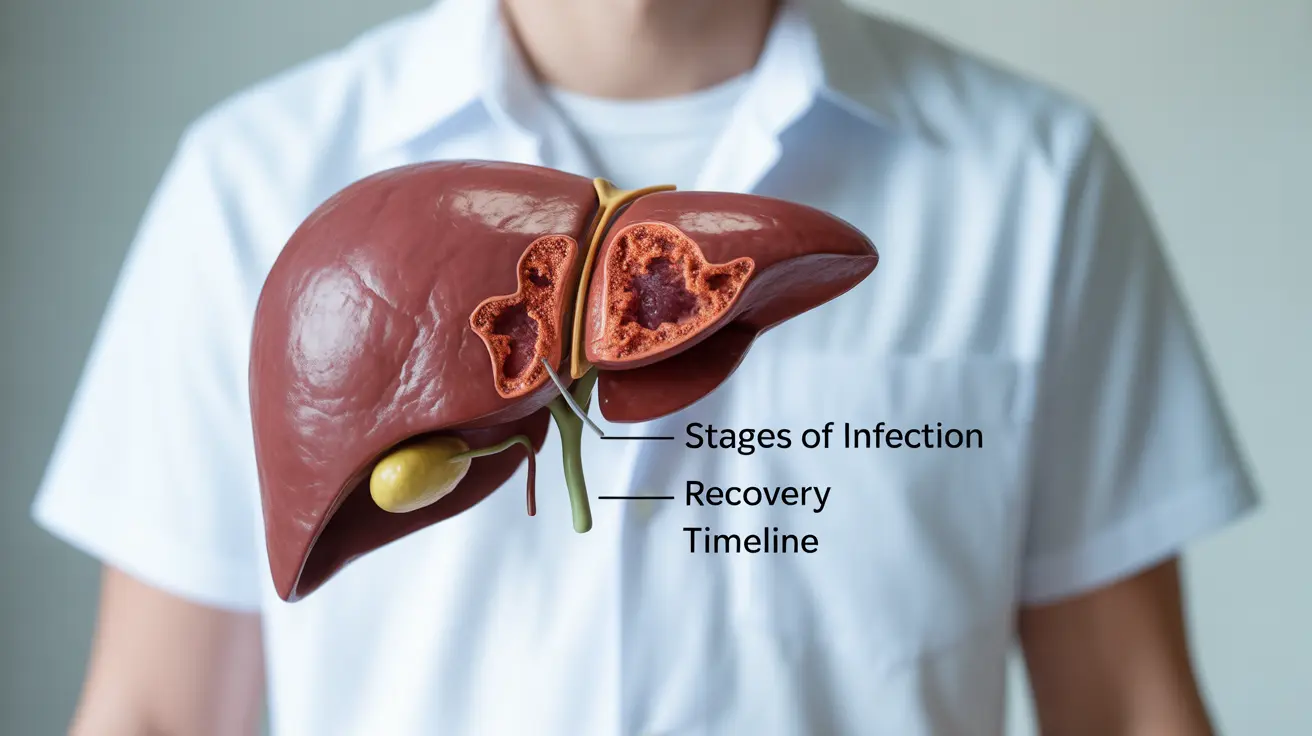Hepatitis A is a viral liver infection that affects thousands of people worldwide each year. For those diagnosed with this condition, understanding the recovery process and timeline is crucial for managing expectations and maintaining optimal health during healing.
This comprehensive guide explores the typical duration of hepatitis A infection, its symptoms, and what you can expect during recovery. We'll also discuss important preventive measures and address common concerns about long-term immunity.
The Natural Course of Hepatitis A
Hepatitis A typically follows a predictable course, with most people making a complete recovery within a few months. The virus affects the liver temporarily but doesn't cause chronic infection like some other forms of viral hepatitis.
Timeline of Infection and Recovery
The progression of hepatitis A typically occurs in several stages:
- Incubation period (2-7 weeks after exposure)
- Active infection phase (symptoms appear)
- Recovery phase (2-6 months)
- Complete resolution
Recognizing Hepatitis A Symptoms
Understanding the symptoms of hepatitis A is essential for early recognition and proper care. Common symptoms include:
- Fatigue and weakness
- Nausea and vomiting
- Abdominal pain
- Jaundice (yellowing of skin and eyes)
- Dark urine
- Loss of appetite
- Low-grade fever
Managing Recovery and Treatment
While there's no specific cure for hepatitis A, several measures can support recovery:
- Adequate rest
- Proper hydration
- Balanced nutrition
- Regular medical monitoring
- Avoiding alcohol and certain medications
Dietary Considerations During Recovery
Maintaining proper nutrition during recovery is crucial. Focus on:
- Light, easily digestible foods
- Adequate protein intake
- Fresh fruits and vegetables
- Plenty of clear fluids
- Small, frequent meals
Prevention and Exposure Management
Prevention is key in managing hepatitis A spread. Important preventive measures include:
- Vaccination
- Proper hand hygiene
- Safe food handling practices
- Clean drinking water
- Post-exposure prophylaxis when necessary
Frequently Asked Questions
How long does it take for hepatitis A to go away, and does it come back?
Hepatitis A typically resolves completely within 2-6 months. Once you've recovered, the virus doesn't come back, and you develop lifelong immunity against it.
What are the symptoms of hepatitis A, and how long do they usually last?
Symptoms usually appear 2-7 weeks after exposure and can last several weeks to months. Common symptoms include fatigue, nausea, abdominal pain, and jaundice. Most symptoms improve gradually as your body fights off the infection.
Are there specific foods or drinks I should avoid while recovering from hepatitis A?
During recovery, avoid alcohol completely and limit fatty or processed foods. Focus on easily digestible foods and stay well-hydrated with water and clear broths. Consult your healthcare provider for personalized dietary recommendations.
What should I do if I think I've been exposed to hepatitis A?
If you suspect exposure, contact your healthcare provider immediately. They may recommend post-exposure prophylaxis with hepatitis A vaccine or immune globulin, which can be effective if received within two weeks of exposure.
Will having hepatitis A once protect me from getting it again in the future?
Yes, after recovering from hepatitis A, you develop lifelong immunity against the virus. This means you won't contract hepatitis A again, though you should still practice good hygiene and food safety measures.




